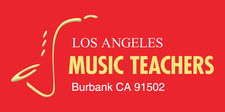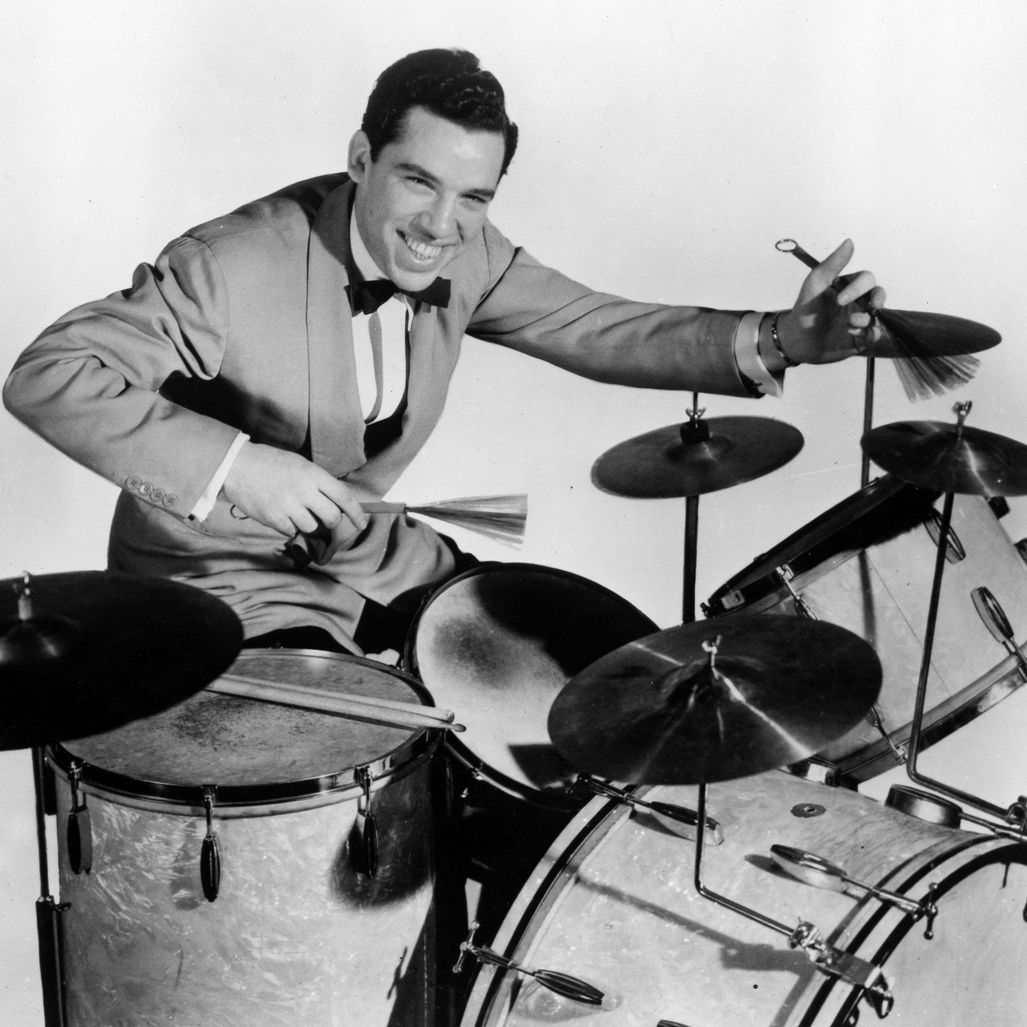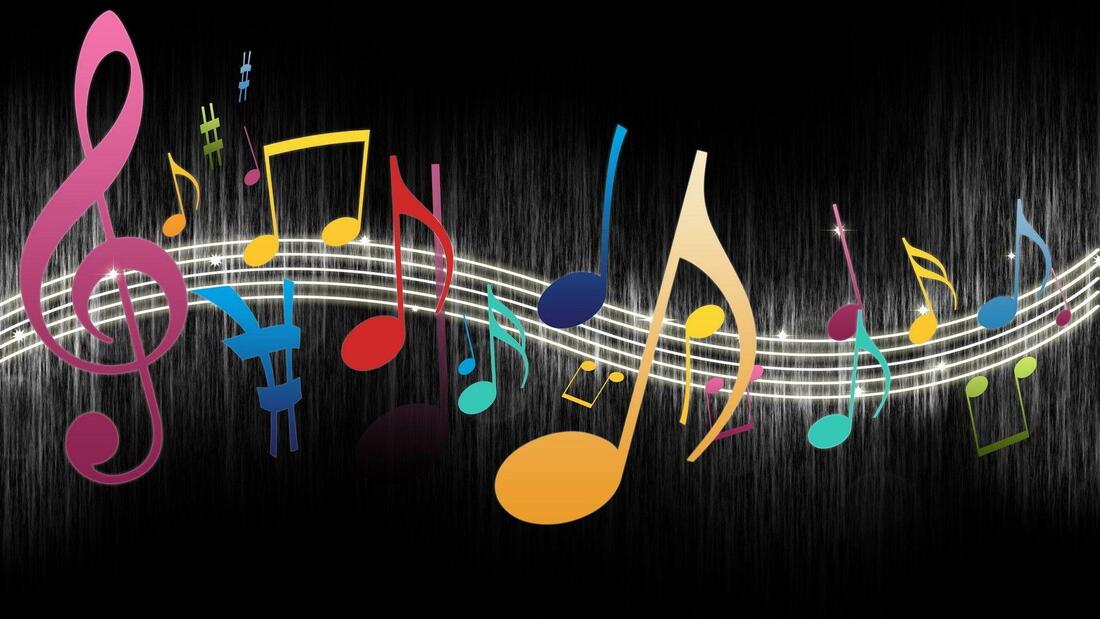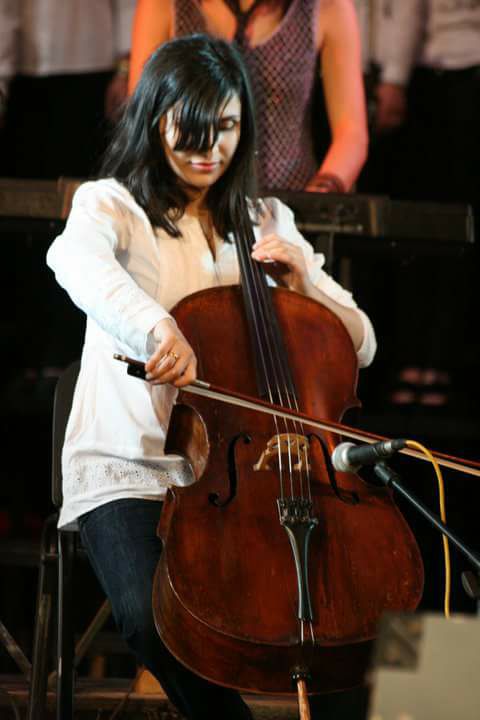The Best 10 Jazz Drummers Of All Time
5/24/2021
Jazz drumming is an art form that requires unprecedented control, coordination, and rhythmic understanding. Jazz is a musical genre that has birthed some of the greatest drummers alive. And jazz drummers have also been pivotal in the development of the modern drum set. In this article, I’m going to list ten of the best jazz drummers of all time. All of the jazz drummers I feature are true innovators and have made undeniable contributions to the genre throughout their careers. Read on to discover my selection of the best jazz drummers of all time, who have had an enormous influence on the genre and helped to further jazz as an art form! 10. Peter Erskine (Born 1954) Peter Erskine is a jazz drumming legend who picked up the drum sticks at the tender age of four. He is an incredibly diverse musician and is well-versed in all different forms of jazz and broader genres such as Funk and Pop. Erskine performed with Stan Kenton and Maynard Ferguson before joining the jazz-fusion group Weather Report. Erskine is an accomplished jazz drummer who is highly regarded for his efficient movement and exceptional technique. He effortlessly moves around the kit with real finesse, and he is a true master of swing and syncopation. 9. Steve Gadd (Born 1945) Steve Gadd is widely regarded as one of the most influential drummers of all time and has set a new standard in contemporary drumming. He is a very accomplished musician and can play anything from jazz right through to Rock music. He has an impeccable playing feel that leaves listeners amazed. As one of the ‘greatest groovers’ to ever pick up the sticks, he masterfully approaches jazz drumming with musical brilliance and delivers what the song requires, every time. Gadd’s feel, imagination, and technical ability makes him one of the best jazz drummers of all time. 8. Louie Bellson (1924-2009) Delivering explosive and dynamic performances, Louie Bellson has cemented himself as one of the jazz drumming greats. Not only is he one of the best jazz drummers, but Bellson also matured into an accomplished author, composer, and entrepreneur. His expressive playing style was indeed a reflection of his varied and hectic life! Louie Bellson helped to pioneer double bass drum sets, and he took full advantage of both bass drum pedals with his exciting and adventurous performances. He was one of the most incredible big band drummers of all time and played with a wide range of acclaimed artists during his long career. 7. Max Roach (1924-2007) A true innovator of Bop drumming, Max Roach left an enormous legacy and is considered one of the most crucial jazz drummers in history. As well as pioneering Bop, he worked in many other music styles and performed with the very best artists of his time, including Coleman Hawkins and Charlie Parker. Max Roach was one of the first drummers to utilize the ride cymbal to emphasize a rhythmic pattern, and this added a beautiful sonic texture to swing and jazz music. Roach innovated an entirely new drumming method by being one of the first drummers to utilize limbs independently. 6. Joe Morello (1928-2011) Joe Morello was an incredibly skilled jazz drumming legend who became renowned for his technical proficiency in playing unusual rhythmic time signatures. He played with a real finesse that helped him to achieve superstar jazz drumming status by emphasizing irregular beats and rhythms through his playing. Morello had an incredibly unique approach to the jazz drum set with Brubeck’s compositions. He held the music together while still showing his creative flair and originality with his unusual syncopations and exciting accents. 5. Tony Williams (1945-1977) Tony Williams was one of the most inspiring and best jazz drummers of all time. He gained fame by performing with Miles Davis at 17 and significantly helped to pioneer jazz fusion. He was not only an incredibly versatile drummer, but he played with incredible precision and technical prowess. Throughout his remarkable career, Tony Williams performed with other legendary musicians, including Jaco Pastorius and Herbie Hancock. He performed with sublime control and power, unleashing dazzling polyrhythms and intricate patterns behind the drum set. 4. Elvin Jones (1927-2004) Elvin Jones was an incredibly prolific jazz drummer who accompanied a wide range of pioneering artists, including John Coltrane, Charles, Mingus, Miles Davis, and more. He quickly distinguished himself as one of the best around his unique playing style – blending power with musical finesse. With the John Coltrane Quartet, Jones helped to innovate jazz music by breaking the music free from the cagey bar lines that restricted the flow. Jones’ drumming paved the way for a modern style of jazz that flowed freely. His creativity, legato phrasing, and syncopations helped to push the boundaries of the genre. 3. Art Blakey (1919-1990) Art Blakey was nicknamed “The Thunder” by Max Roach for his powerful and captivating drumming style. He was one of the most desirable and best jazz drummers throughout the ’50s, ’60s, ’70s, and ’80s. Every jazz musician wanted to play with Art Blakey. He had an incredible signature style and was incredibly adept at maintaining independence with all four limbs. Blakey had a more straight-ahead drumming style than most Bop drummers, but he also liked to innovate with different sounds behind the drum set. He can also be credited with inspiring the development of riveted cymbals by placing his keys over the ride cymbal wingnut to produce a sizzle effect. 2. Buddy Rich (1927-2004) Without a doubt, one of the best jazz drummers of all time, Bernard “Buddy” Rich was one of the most technically gifted and dazzling drummers there ever was. He displayed incredible speed, consistency, power, and dynamics with his highly expressive drumming. Even though his style was wild and powerful, he was also adept at playing softer with drum brushes. Buddy Rich performed with his time’s greatest jazz artists, including Tommy Dorsey, Benny Carter, Harry James, and many more. From 1966 until his death, he led successful big bands even in an era when their population had diminished. Rich’s extended drum solos were phenomenal, and there is no denying he was one of the most influential drummers of all time. 1. Gene Krupa (1909-1973) Gene Krupa is widely considered the founding father of modern drumming. Krupa’s style and showmanship were mesmerizing to watch. He was the first drummer to use a bass drum on a recording session and profoundly influenced the modern drum kit. Krupa was the first drummer to perform solos in a song and helped to bring attention to the drummer within a band. Krupa’s superb drum solos became widely celebrated amongst jazz musicians in the 1930s. He had a crucial role in elevating the drummer’s position from an accompanying instrument to a solo voice. There are far too many sensational jazz drummers to be able to list in a single article. There are countless drumming legends I have missed, who are all worthy of a feature! I hope you have enjoyed my selection of the best jazz drummers, who have all influenced entire generations of musicians and helped to further the legendary genre with their unmatched ability and creativity. If you're interested in taking lessons on Zoom or In Person in Burbank, Glendale or North Hollywood, please contact us at (818)902-1233 or on our website at https://www.losangelesmusicteachers.com/online-drum-lessons-in-burbank-ca.html
Ascap Article - The Death of Genre
5/6/2021
What a Great article, If you read below you will see what Jeannette Cooper had to say about Genres in music today. Time was, you listened to jazz or rock, read mysteries or romances, majored in English lit. or anthropology, craved Chinese or Italian. You stuffed your likes into compartments. Then came cross-fertilization, influences, blends, hybrids, boundary-breaking ecommerce. Now you can listen to Japanese jazz or Afro-Celtic rock, read a literary mystery that is half cozy and half thriller, eat a kimchi quesadilla or roll sushi ingredients into a burrito. Genre is dying. “The idea of identity as a fixed and narrow concept, and of taste as inherently cloistered, feels bizarre, punitive, and regressive,” Amanda Petrusich wrote last month in the New Yorker. “Genre feels increasingly irrelevant to the way we think about, create, and consume art.” It is entirely relevant, however, to the way we market art. The few remaining bookstores need to figure out where, on what shelf, in what section, a book belongs. Librarians need to catalog that book. Publicists need to hype a new book to readers who already love books like this one. Awards shows need categories. So even as genre loses sway, it continues to organize our cultural marketplace—and we continue to glue on the wrong labels. Petrusich mentioned Justin Bieber’s distress to have his R&B album nominated for Best Pop Vocal Album—which, sure, was a more prestigious category, but the album was R&B. Tyler, the Creator objected to winning Best Rap Album because “whenever we, and I mean guys that look like me, do anything that’s genre-bending, they always put it in a rap or urban category…. Why can’t we just be in pop?” Why, and how, did genre take shape in the first place? Blame Aristotle, who gave the scientists their taxonomy of genus and species and broke literature into poetry, drama, and prose. From there he outlined subcategories: lyric, epic, and dramatic poetry, the latter including comedy, tragedy, melodrama, and—the start of the blending—tragicomedy. You will dizzy yourself if you try to find today’s criteria, the organizing principles we use to categorize. Genre can be determined by historical period (regency) or geographic location (westerns); by how tightly it cleaves to established reality (fantasy, magical realism, science fiction, true crime); by what psychological needs it satisfies in us (mystery, romance, thriller); by how it uses language (poetry, essay, novel, play). Cassius Longinus sorted out the methods various writers used to influence their audience’s emotions. Northrop Frye looked at the relationship between the “real” and the “ideal”: Romance was the ideal, irony the real, tragedy the plummet from ideal to real. When masterpieces rise above or interweave the genres, we call them classics. Shakespeare’s Hamlet is a mystery, a tragic romance, a thriller; The Tempest is fantasy; the comedies weave in bits that would work as French farce or vaudevillian schtick; much of the prose is pure poetry. But for readers gobbling up paperbacks at bedtime, “genre” became a flat, predictable formula (boy meets girl, star-crossed lovers are united, the killer is caught, the suspects are gathered in the parlor). Blasting those formulas was the first death blow. Writers like Michael Chabon played with genre in such powerful ways, the categories lost meaning. And once the word “genre” could no longer be used dismissively, the critics’ fun melted away. Authors began to play, blending and defying the conventions of various genres. Painfully aware how few book and music stores remained, they stopped worrying about category and focused on crashing the popularity lists. Genre’s demise should pop champagne corks all over the world. Too much has fallen between the compartments and landed in obscurity simply because an artist refused to conform to a formula. But can we wipe out the old categories altogether? Even the savviest curator might flounder. Can technology help us? I once copied out recipes from batter-stained index cards. Now, if I have extra buttermilk or a sack of ripe peaches, I search online for recipes with those ingredients. Spotify finds me all sorts of cool music. Books, though, are problematic: If I ask Google to suggest what I should read next after loving Abraham Verghese’s novel Cutting for Stone, it will suggest books about doctors, nonfiction by Verghese, and books that take place in Ethiopia. These are not the reasons I loved Cutting for Stone. The difference? Spotify has algorithms, but it also has human curators for its playlists. And human curators understand subjective qualities—vibe, tone, depth, candor. “Curate” was such a trendy verb a decade ago that I vowed to stop using the word, but now I see why it emerged with such fanfare: Discernment is the skill that will keep the rest of us sane. After listening to heavenly Irish music in the pubs of St. John, Newfoundland, I walked into a music store and asked for a recommendation: Celtic, but not self-consciously so, ballads, female singer, high clear voice, lilting melodies, the emotion strong but not maudlin, nothing sappy, historically rooted but fresh. Grinning, the guy pulled out five options and thanked me for knowing what I wanted. But to be that persnickety, you have to know exactly what you want ahead of time, and that ruins the chance of surprise. Besides, these days we barely ever shop in person—so now what? Sure, there are ratings, but how can you trust a bunch of strangers to tell you what will feed your soul? Maybe we could filter by the type and mood and color and the quality of the writing. Easy bedtime read or sentences you want to underline? Then the ingredients (mystery, witty dialogue, a little romance, strong friendships and teamwork, a lot of psychological complexity, meaning, depth). Then what we do not want (one-sentence paragraphs so manipulatively suspenseful they cancel sleep; gore designed to awaken some primordial bloodlust I would rather keep buried). Show some succinct measure of what other readers thought, but do not make us wade through quibbles that could taint our own response. Develop an algorithm skillful enough to note why each of us likes what we like. Add curation, to surprise us with choices we might not otherwise find. It is complicated, such sorting, and every year there will be more to choose from. But as we figure out a new approach, either softening or expanding the old categories and discarding the bias, we might begin to see how much comedy there is in tragedy, how much tragedy in comedy. Those of us who have shunned science fiction in favor of nonfiction social commentary will see how often they are one and the same. Realizing that what is said and why matters far more than when, where, or how, we might be less likely to snap our mind shut and avoid entire categories. Publicists will have to get more creative, selling something because of how it makes us feel, opens our minds, explores certain ideas. Artists and thinkers will feel freer to roam. If we pull this off, will we learn to think outside all the other boxes, too—race, class, gender, religion? Because there have always been blends, mixtures, influences, examples that shatter the compartments. We just need more graceful ways to acknowledge them. Read more by Jeannette Cooperman here. If you're interested in taking lessons on Zoom or In Person in Burbank, Glendale or North Hollywood, please contact us at (818)902-1233 or on our website at https://www.losangelesmusicteachers.com/online-music-lessons-burbank-ca.html
Is it hard to Learn Cello?
5/5/2021
Is it hard to Learn Cello? When learning how to play the cello, very little is spoon-fed to you by the instrument. Keyboard and instruments with frets, such as the piano and guitar, are a little easier to learn the basics. Putting your finger on the right key/fret will allow you to produce the note you want to hear. With cello, you need to have a teacher guiding you to ensure you’re learning the right way. This will lead to a lifetime of enjoying the instrument. If you have the right teacher, anyone can learn the fundamentals of playing the cello. As with most instruments, the cello will come more easily to someone with experience reading notes and rhythms. Most of cello music is written down, rather than transferred aurally from teacher to student. Does My Age Matter? Young students make great beginner cellists. Often with youth comes unbridled enthusiasm for learning a cool new instrument that helps them absorb new information like a sponge. These advantages can carry a student a long way. The excitement encourages them to practice more on their own and their ability to retain information helps them progress quickly in their studies. One difficulty that young students face though, is the challenge of analyzing their playing. As a result, they need an outside observer to help them identify things that cause them trouble, whether it is posture, intonation, tone quality, etc. Young beginners are generally less coordinated than their adult counterparts and will remain that way until well after puberty. Adult beginners have their own set of advantages. Firstly, they’re better in control of their bodies which helps them make changes to technique and posture more quickly. They also have a strong ability to critically analyze their own actions, and better sense of how they want to sound. As a result of their ability to critically analyze their own playing, adult learners can sometimes go straight to the criticizing part. This can lead to discouragement when they don’t immediately sound the way they want. However, the student is probably playing at a level appropriate to how long they have been studying. Practice Helps perfect the sound Practicing in between lessons is another necessity that makes learning the cello much easier. Without daily practice times, you will find your teacher going over the same concepts week after week during your lessons. Make a commitment to find a small amount of time each day to practice playing the cello and you’ll set yourself up for success. (30 Min Rule) If you only have five minutes, play some open strings for tone quality. Have a little more time? Add in some scale practice. If you have even more time, pick apart the challenging sections of your newest solo piece. There is always something you can practice, but focus on the most important concepts with the time that you have. Start Learning Cello Today You no longer have to wonder if the cello is hard to learn. With a teacher guiding your technique, regular practice times, and a willingness to learn, you can become an excellent cellist. Overall, the cello is an incredible instrument with a wonderful depth of sound. To get started now, sign up for your first cello lesson right here at Los Angeles Music Teachers/ Burbank’s 5 star Music School with one of our best cello instructors Gvantsa. If you have any questions you are welcome to call us for advice on best practices for renting or buying a string instrument like violin or cello. Our teachers will also help answer any questions and guide you as you take lessons. If you're interested in signing up for lessons on Zoom or In Person in Burbank, Glendale or North Hollywood, please contact us at (818)902-1233 or on our website at https://www.losangelesmusicteachers.com/online-cello-lessons-in-burbank-ca.html
|
Archives
July 2024
Categories
All
|
|
Music Lessons Available on All Instruments:
Piano Lessons
Guitar Lessons Voice Lessons Drum Lessons Violin Lessons Cello Lessons Saxophone Lessons Jazz Improvisation Lessons Flute Lessons Clarinet Lessons Singing Lessons Acoustic & Elec Bass Songwriting & Production |
Contact Us Now
|
Website by Never Alone Business Services




 RSS Feed
RSS Feed



